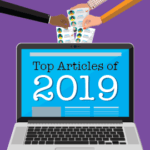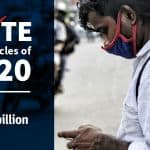Vote for NextBillion’s Most Influential Article of 2021
As another pandemic year ends with the rapid global spread of a new COVID-19 variant, it’s becoming clear – if it wasn’t already – that the hopes for a return to normalcy that many of us felt at the start of 2021 were unrealistic. With vaccine access growing gradually (yet unequally) around the world, and new treatments for the virus continuing to move forward, better days are still ahead. But in the meantime, both communities and the businesses that serve them are left in a sort of limbo: balancing the need to continue adapting to the pandemic’s evolving challenges with the understandable desire to put this crisis behind us.
This balancing act can be seen in the articles we’ve selected for NextBillion’s “Most Influential Article of the Year” contest in 2021. As an open forum for emerging markets business, we publish around 150 original, guest-written articles each year, covering enterprises, innovations, challenges and opportunities across multiple sectors and geographies. In December we run the numbers on our past year of content and select the 12 most-read articles to include in the contest, inviting readers to vote for the article that impacted them the most. This year, to our surprise, only a single article dealt specifically with COVID-19, in contrast to our 2020 contest, in which eight of the 12 pieces had a pandemic focus. But as in real life, the virus lurked in the background of many of these articles, as businesses in low- and middle-income countries continue to respond to the countless ways the crisis has reshaped their markets and increased the urgency of their missions.
We’ve listed the 12 articles in our 2021 contest in alphabetical order below, and we invite you to vote for the one that affected your thinking or informed your work the most. To vote, scroll to the bottom of this page and make your selection. You can also vote at the bottom of any individual article in the contest. You can vote up to one time per hour during the two-week voting period, which runs from Dec. 20 to Jan. 2.
Short summaries and links to each article are below – feel free to share them widely and vote repeatedly. And thank you for reading and writing for NextBillion during this confusing, frustrating – yet somehow slightly encouraging – year. Have a happy holiday season, and best wishes for 2022.
- Categories
- Agriculture, Coronavirus, Energy, Finance, Impact Assessment, Investing, Technology



